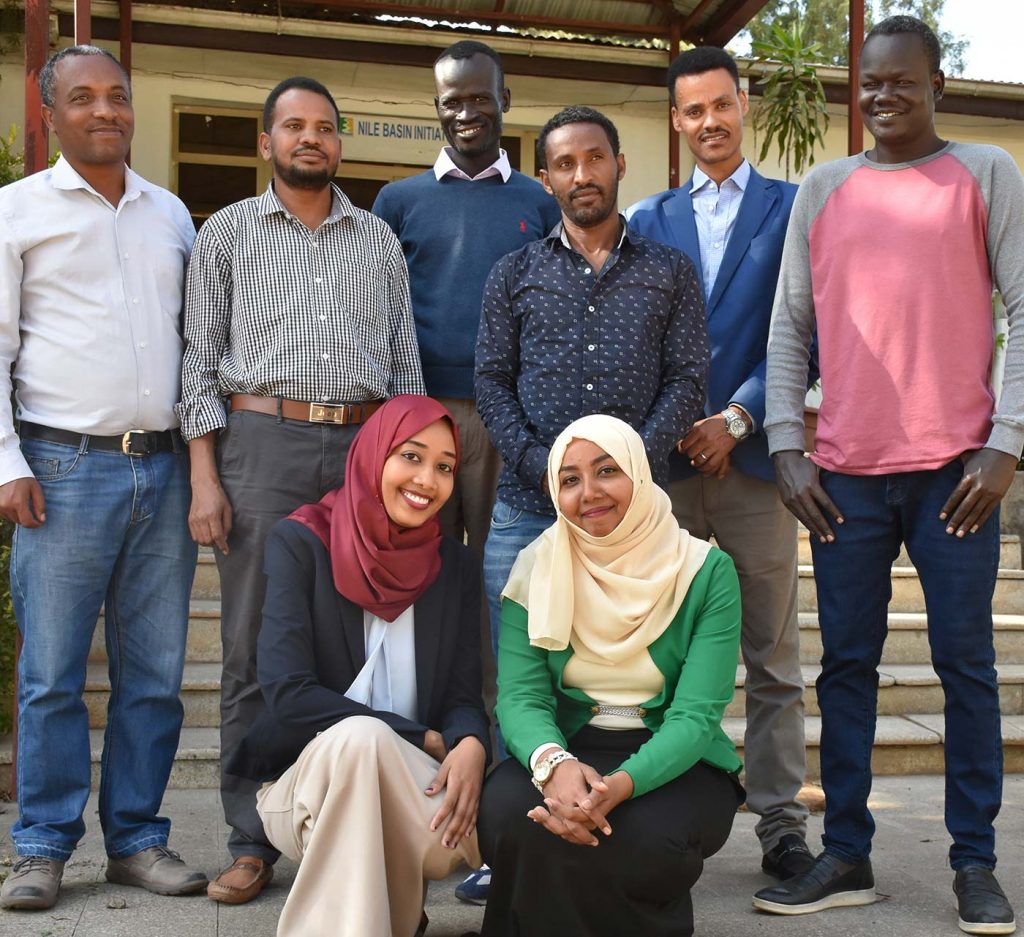Nurturing future water experts for sustainable water resources management in Africa
Posted in : Blog on 16 July 2020
On the 15 July each year, the world celebrates the World Youth Skills Day. The celebration of this day provides an opportunity to acknowledge the importance of equipping young people with skills for employment, decent work and entrepreneurship. This day recognizes and emphasizes the importance of youth skills in development.
As per the United Nations report of 2015, there is 1.2 billion youth (15–24 years) or one out of six, globally, and it will increase to one out of four by 2030.

Equipping African young people
By 2050, this population will increase by nearly 50%. Today, 226 million youth live in Africa, or 20% of the continent’s total population.
Africa has the largest concentration of young people in the world who, with the right exposure, can be catalysts in solving critical issues grappling the continent such as water. Lack of opportunities for young professionals to start their professional careers and the failure of the water sector to attract young, talented and motivated professionals (especially young women) are twofold issues that can be easily addressed. This can enable the overall dynamism of the sector by attracting interest in questioning reforms, implementing innovative approaches, and focusing on contemporary challenges.
The sector faces complex issues when we look at water access and sharing due to transboundary water issues, and needs addressing those through technical and geopolitical engagements. Solving these will require specific skills and specialized programs targeting the youth as they are future decision-makers.
We believe that it is essential to provide the right skills and opportunity to young people, which will help them to influence and impact communities, and countries propelling Africa to a prosperous future. The World Bank, through its various initiatives around Young Professional, offers exposure to young people for charting their careers in the water sector.
Building water sector skills in Angola
Due to the 27 year-long war, Angola has a one-generation gap of skilled professionals. As the new generation of local professional is emerging, it is difficult for them to find meaningful jobs due to limited opportunities, and years of experience is highly valued.
The World Bank-supported Water Sector Institutional Development Project started in 2018, has launched a process to find and hone young and motivated water professionals. They can solve critical water issues in the country now and in the future.
“As a young professional, one of my dreams is to grow professionally and contribute to the development of Angola. In the country, some regions don’t have access to drinking water, so being able to be a part of this force that makes water reach to these communities, is rewarding.” Tarciso F. Bengo, Graduate, Young Professionals Program in the Water Sector, World Bank
A multidisciplinary cohort of 18 experts was formed to have professionals across sectors needed for boosting the water sector in Angola. The Young Professional closely work with international experts to absorb best practices and gain insights from their experience.
Building the Skills of the Youth in the Eastern Nile (Africa)
Cooperation in International Waters in Africa (CIWA), through initiatives like the Eastern Nile Technical Regional Office (ENTRO) of the Nile Basin Initiative (NBI) Young Professionals and Internship Program, is contributing to building the skills of young people. The initiative inviting young professionals from four countries – Egypt, Ethiopia, South Sudan, and Sudan – is creating a knowledge community of experts to support the Eastern Nile Cooperation. These opportunities provide a unique platform for the participants to expand their network, build capacities, understand cultural nuances between countries.
“It’s a major capacity building program for young professionals. It improved my intellectual abilities, my social skills and broadened my network through the program. It pretty much paved the way for me to start planning what I’ll be looking for towards my future PhD studies. Modern problems require modern solutions, and it’s a value-added by targeting the younger demographic.” Ethiopia Bisrat, Alumni 2018, Ethiopia, Environmental Engineer
Creating a brigade of water specialists
The ENTRO program is launching a cadre of water professionals and future leaders who are acquiring new skills, developing new regional collaborations, and contributing to multi-sectoral perspectives.
The program goes beyond the academic insights that traditional universities impart. It provides the necessary on-the-job practical training for young people to gain an in-depth understanding of water issues and decide their future career path in the sector.
By creating a conducive environment, ENTRO provides a collaborative platform to young water resources professionals, academics and practitioners. The interactions are helping in solving shared problems of the Nile Basin and building cooperative partnerships. Young people now have a chance to utilize their skills, start their career and develop a wholesome perspective of sustainable development.
“I acquired a lot of skills related to hydrological and hydraulic modeling. After the completion of this program, I started working as a water resources engineer and proposing solutions for flood risk management. Young people of today are future decision-makers. To have the values of ENTRO and Nile Basin will help not take a unilateral decision, but we have to consider the benefit of other countries in this basin as well.” Ahmed Nasr, Alumni 2013, Egypt, Hydrologist Engineer
To date, 180+ interns have completed the program. They have assisted in the transfer and sharing of knowledge on water resources models, interactive analytical toolkits, optimization tools, remote sensing applications, flood forecasting and early warning activities, among others.
As we join the world to mark the World Youth Skills Day, at CIWA, we are celebrating entities working towards achieving better socio-economic conditions for Africa's youth. Share on X We hope that these experiences will inspire others to equip the youth with the skills required to access the world of work, including capabilities for self-employment.

